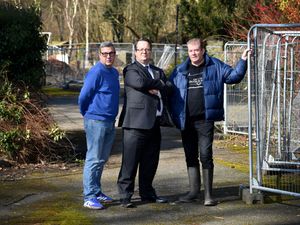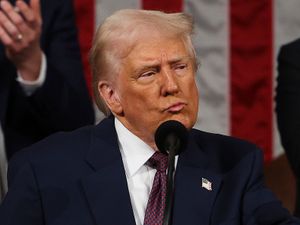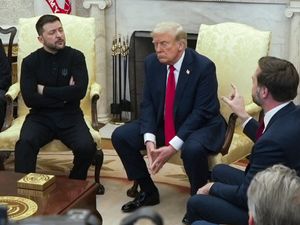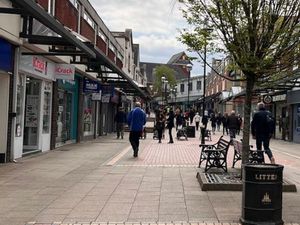Post-Brexit trade talks resume as ‘significant differences’ remain
Michel Barnier and Lord Frost met in Brussels on Sunday.
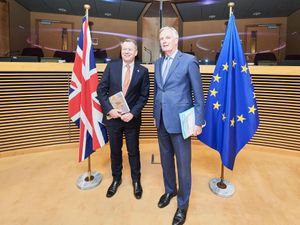
Talks on a post-Brexit trade deal look set to continue into next week after another weekend of tense negotiations failed to achieve a breakthrough.
After lead negotiators Michel Barnier and Lord Frost met in Brussels on Sunday, a UK Government source said the discussions had been “difficult”.
The source said “significant differences” remained over the key issues of fisheries and the so-called “level playing field rules” on state aid for business.
“Teams have been negotiating throughout the day and expect to continue tomorrow. Talks remain difficult and significant differences remain,” the source said.
“We continue to explore every route to a deal that is in line with the fundamental principles we brought into the negotiations.”
The European Parliament had said the talks needed to be concluded by Sunday evening if it was to ratify any deal before the current Brexit transition ends on December 31.
However, if there were to be a deal, under EU rules it could be provisionally signed off by leaders of the 27-member bloc with ratification delayed until 2021.
Earlier Mr Barnier warned that Britain must be prepared to respect the EU’s sovereignty if the talks were to succeed.
He said the EU remained committed to achieving “a fair, reciprocal and balanced agreement” but said both sides needed to be able to act when their interests were at stake.
His comments came after a UK Government source warned that the negotiations would fail unless there was a “substantial shift” in the EU’s position in the remaining days of the talks.
The British side has accused the EU of making “unreasonable demands” and of failing to respect UK sovereignty over fishing rights and fair competition rules.
In a statement posted on Twitter, Mr Barnier said the talks with the UK’s chief negotiator Lord Frost were at a “crucial moment”.
“The EU remains committed to a fair, reciprocal and balanced agreement. We respect the sovereignty of the UK. And we expect the same,” he said.
“Both the EU and the UK must have the right to set their own laws and control their own waters. And we should both be able to act when our interests are at stake.”
Health Secretary Matt Hancock said he believed a deal was still possible but said it would require movement on the EU side.
“We want these talks to reach a positive conclusion. I think everybody wants a deal. Unfortunately, the EU have put in some unreasonable demands,” he told Sky News’s Sophy Ridge On Sunday programme.
“I’m sure that a deal can be done but obviously it needs movement on the EU side.”
If there is no deal by December 31, the UK will leave the single market and customs union and begin trading with the EU on World Trade Organisation terms – with the imposition of tariffs potentially leading to higher prices in shops.
But Scotland’s First Minister Nicola Sturgeon said Prime Minister Boris Johnson should try to get an extension to the Brexit transition period because of the discovery of a faster-spreading coronavirus strain that has caused European countries to halt flights and ferry crossings from the UK.
She tweeted: “It’s now imperative that PM seeks an agreement to extend the Brexit transition period.
“The new Covid strain – & the various implications of it – means we face a profoundly serious situation, & it demands our 100% attention.
“It would be unconscionable to compound it with Brexit.”

